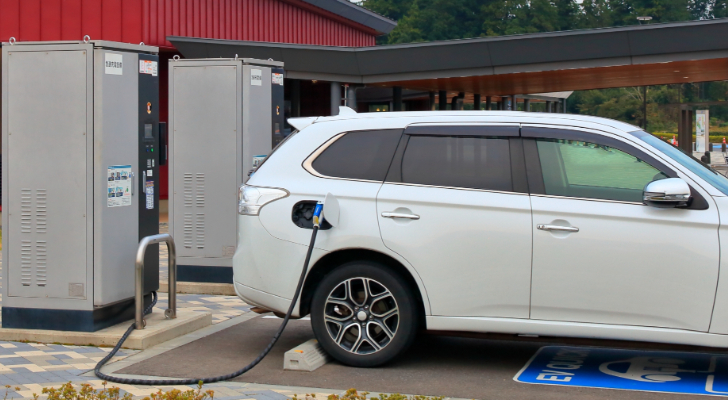
As electric vehicles (EVs) gain popularity, seniors might find themselves considering whether an EV is the right choice for their lifestyle. This guide explores the top recommended EVs for seniors, along with the benefits and drawbacks of owning an EV in this stage of life.
What is EV?
An electric vehicle (EV) is a type of vehicle that is powered by one or more electric motors, using energy stored in rechargeable batteries. Unlike traditional internal combustion engine (ICE) vehicles that run on gasoline or diesel, EVs use electricity as their primary source of energy. There are several types of electric vehicles:
- Battery Electric Vehicles (BEVs): These are fully electric vehicles with no gasoline engine. They rely solely on electric power and need to be recharged from an external power source. Examples include the Tesla Model 3, Nissan Leaf, and Chevrolet Bolt.
- Plug-in Hybrid Electric Vehicles (PHEVs): These vehicles have both an electric motor and a gasoline engine. They can operate in electric-only mode for a certain distance and switch to the gasoline engine when the battery is depleted. Examples include the Toyota Prius Prime and the Chevrolet Volt.
- Hybrid Electric Vehicles (HEVs): These vehicles combine a gasoline engine with an electric motor but cannot be plugged in to recharge. Instead, they recharge the battery through regenerative braking and the internal combustion engine. Examples include the Toyota Prius and Honda Insight.
- Fuel Cell Electric Vehicles (FCEVs): These vehicles use a fuel cell to generate electricity by combining hydrogen with oxygen, producing only water and heat as byproducts. Examples include the Toyota Mirai and Hyundai Nexo.
EVs offer several benefits, including reduced greenhouse gas emissions, lower operating and maintenance costs, and a quieter and smoother driving experience. As technology advances and charging infrastructure expands, EVs are becoming increasingly popular and accessible.
Top Recommended EVs for Seniors
- Tesla Model 3
- Features: Advanced safety features, autopilot capabilities, long-range battery.
- Why it’s good for seniors: The autopilot feature can assist with driving, reducing stress on long trips. The intuitive interface and frequent software updates ensure the car remains modern and user-friendly.
- Chevrolet Bolt EV
- Features: Spacious interior, high seating position, impressive range.
- Why it’s good for seniors: The high seating position provides easier access and better visibility. The spacious interior accommodates passengers and cargo comfortably.
- Nissan Leaf
- Features: Affordable price, e-Pedal for easier driving, advanced safety features.
- Why it’s good for seniors: The e-Pedal allows for easier acceleration and braking, reducing fatigue during driving. Its affordability makes it a practical choice for those on a budget.
- Hyundai Kona Electric
- Features: Compact size, advanced driver assistance systems, long-range battery.
- Why it’s good for seniors: Its compact size makes it easy to park and maneuver, while advanced safety features offer peace of mind.
- BMW i3
- Features: Stylish design, compact size, easy entry and exit.
- Why it’s good for seniors: The stylish design and high seating position make it both fashionable and functional. The doors open wide, making entry and exit easy.
Pros of EVs for Seniors
- Environmental Benefits
- EVs produce zero emissions, contributing to cleaner air and a healthier environment.
- Lower Operating Costs
- Electricity is cheaper than gasoline, and EVs have fewer moving parts, which means less maintenance and lower repair costs.
- Quiet and Smooth Ride
- EVs are known for their quiet operation and smooth acceleration, providing a comfortable driving experience.
- Advanced Safety Features
- Many EVs come equipped with advanced safety features, such as automatic emergency braking, lane-keeping assist, and adaptive cruise control, which can enhance driving safety.
- Government Incentives
- Seniors can take advantage of federal and state incentives, such as tax credits and rebates, to reduce the cost of purchasing an EV.
Cons of EVs for Seniors
- Range Anxiety
- The fear of running out of battery before reaching a charging station can be stressful, especially for those who are not familiar with EV charging infrastructure.
- Charging Infrastructure
- While the number of charging stations is growing, it may still be challenging to find convenient charging locations, especially in rural areas.
- Initial Cost
- EVs can be more expensive to purchase than their gasoline counterparts, even with incentives. This initial cost can be a barrier for some seniors.
- Learning Curve
- Transitioning from a gasoline vehicle to an EV requires learning new habits, such as understanding charging procedures and maximizing battery life.
- Battery Degradation
- Over time, EV batteries can lose capacity, reducing the vehicle’s range. While this degradation is usually gradual, it can still impact long-term usability.
Conclusion
Electric vehicles offer numerous benefits for seniors, including lower operating costs, a quieter ride, and advanced safety features. However, potential challenges such as range anxiety and the initial cost should be carefully considered. By choosing the right EV and taking advantage of available incentives, seniors can enjoy a modern, environmentally friendly driving experience.


